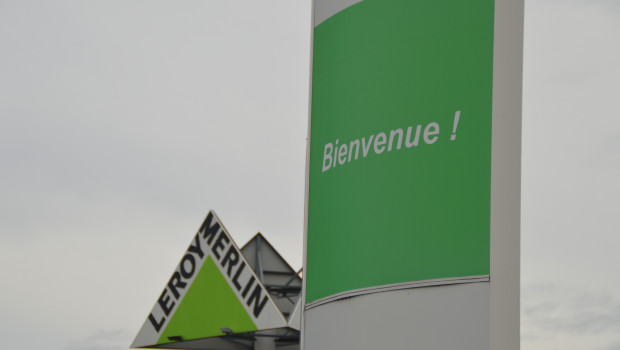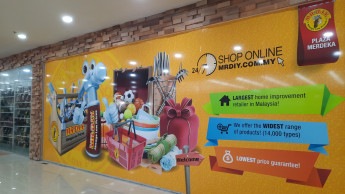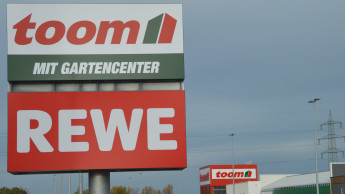But in the DIY industry the development of the overall segment is still considered to be a positive result. At a press conference in Paris the presidents of both the association of manufacturers Inoha as well as the DIY association FMB, Jean-Éric Riche and Mathieu Pivain, highlighted the fact that the industry has "withstood" the difficult conditions. In comparison, the other industries in the field of home - furniture (-2.7 per cent), household appliances (-0.4 per cent), garden (+0.2 per cent) - performed worse in 2018. Private consumption has reportedly declined by 1.6 per cent, permits for the construction of new buildings by 7 per cent.
Three quarters of the DIY market - EUR 19.806 bn or 76 per cent - is covered by large-scale DIY stores. In contrast to this, wholesale has grown by 1.0 per cent to a sales volume of EUR 3.907 bn (15 per cent market share). Traditional specialist shops have lost 2.0 per cent (EUR 728 mio, 3 per cent share). The DIY departments at food retailers have also made 1.9 per cent less sales (EUR 547 mio, 2 per cent share). As expected, the big winner was e-commerce with DIY products. It recorded an increase of 18 per cent to EUR 1.008 bn which corresponds to a market share of 4 per cent.
In the DIY store distribution channel, market leader Leroy Merlin further expanded its position and boosted its market share from 34 per cent in 2017 to currently 36 per cent. Groupe Adeo controls 43 per cent of the market when taking the sales channels Weldom and Bricoman into account.
In contrast, Castorama, the number two in the French market, lost two percentage points and achieved a market share of 15 per cent. Thus, the market share of the British Kingfisher group fell below 30 per cent as its second sales channel, Brico Dépôt, remains at 14 per cent. The shares of the remaining market participants are also largely unchanged.
The retail space of the French DIY stores grew by only 1 per cent in 2018 while the big boxes are slightly losing significance: the providers whose stores are on average larger than 10 000 m² in size have achieved 50 per cent of the industry sales with 36 per cent of the overall retail space; however this is one percentage point less than the year before, while the next smallest size class are gaining slightly.
On a product group level, a positive development can be seen among ranges which are related to work which is considered necessary and renovation: wood has grown by 2.4 per cent, building materials by 2.2 per cent, heating by 2.3 per cent; however electrical has lost slightly (-0.3 per cent). Decorative product ranges were in a generally weaker position: decoration -3.3 per cent, paints/cleaning products/adhesives -0.6 per cent.

 Menü
Menü
















